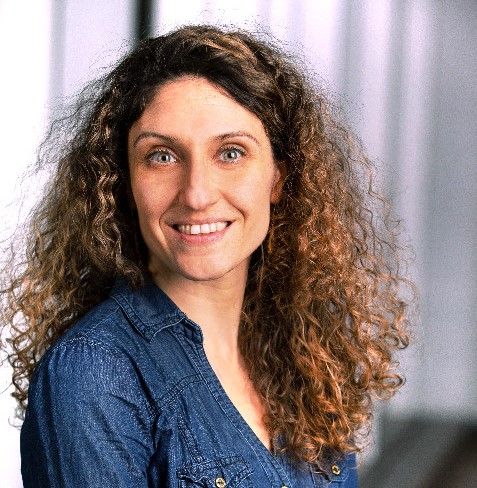Silvana Jananji
Silvana Jananji
M.Sc Virology and Immunology, 2004
Scientist In vitro Pharmacology, Ventus Therapeutics

“Problem solving, communication and scientific outreach skills are qualities I was able to develop during my time at INRS and have been essential to my development as a scientist.”
After obtaining her B.Sc. in Biology from McGill University, Silvana Jananji did an internship of several months at the Armand-Frappier Santé Biotechnologie (AFSB) center on the isolation of chemical components of yarrow and later decided to pursue her M.Sc. under the direction of Albert Descoteaux on the parasite Leishmania donovani, a disease transmitted by the bite of a sand fly that is mostly found in tropical regions. She summarizes: “The goal was to find out how the parasite manages to fool the immune system, which detects it but still manages to divert it and use it to its advantage. What made this research work very interesting was to understand its mechanisms, which at the time, were not yet understood.”
Silvana describes her time at AFSB as very productive, where she was able to work on a variety of research projects and hold different positions after graduation during her seven years at the center. One of her summer jobs during her master's degree was to lead a high school student in a research lab for the INRS Apprentice Researcher program for a week. "This program started when I was a student at AFSB. A few years later, when I was working at Sainte-Justine Hospital, I met by chance this same student with whom I had been paired and who was doing her Master's degree in science. I was very happy to see that perhaps I had had an impact on her career choice. I was very touched.”
She considers that the student life at the AFSB center has also been beneficial for her career development. She had the opportunity to participate in the organization of an Armand-Frappier conference at the Manoir du lac Delage in Québec City and this experience allowed her to learn the basics of event organization. “These are learning opportunities. It was an incredible opportunity for me to learn more about the inner workings of an event.” The mission of the Armand-Frappier conference is to provide an opportunity for francophone graduate students to showcase their scientific work through oral presentations and to present their research results to their peers. Silvana notes that throughout her time at AFSB, she has felt encouraged to participate in conferences and symposia and encourages current students to participate. “It helps to learn how to clearly communicate one's research projects, how to present one's work well, and how to interact with people from other research institutes and universities. Learning these skills makes a real difference and has helped me greatly in my scientific career.”
Silvana also points out that the small size of the AFSB center means that one can explore and collaborate closely with peers and professors, which has allowed her to learn and expand on a wide range of laboratory techniques and has been very formative. “Research in general is more often discouraging than encouraging”. Few scientific experiments work right from the start, and after many years of professional experience, Silvana knows this reality well. “If your experiment doesn't work, you have to look at it from another angle. Problem solving becomes our daily life and we become very good at it. The difficulties of mastery are the many tweaks to experiments, the long trials, the unpredictability of science, the inconclusive results. We have a goal, but obstacles sometimes lead us elsewhere or nowhere. Our patience is tested and it is sometimes difficult to stay committed and move the project forward.”
“Perseverance and determination make all the difference. Think of another explanation for our observations. Always challenge yourself because there are always ways to look at things differently.”
Since 2021, Silvana has been a scientist at Ventus Therapeutics, a biopharmaceutical company based in Montréal and Boston that specializes in small molecule drug discovery. According to Silvana, “Biotechnology is based on science and discoveries from basic research and there is an increasing amount of collaboration between the two. This makes my job all the more exciting, allowing me to stay in close contact with basic research.”
Silvana concludes this interview with this valuable advice for students: “Don't be afraid to share the difficulties and failures you have encountered in your trials with your colleagues. Don't be ashamed of your pitfalls, reach out to others, seek to do good science and think outside the box. Stay objective and always keep a critical mind. Doing good science is not jumping to conclusions. You have to make sure all the angles have been covered and the right statistical formulas have been used in order to draw the right conclusions.”
[Interviewed in March 2023.]
